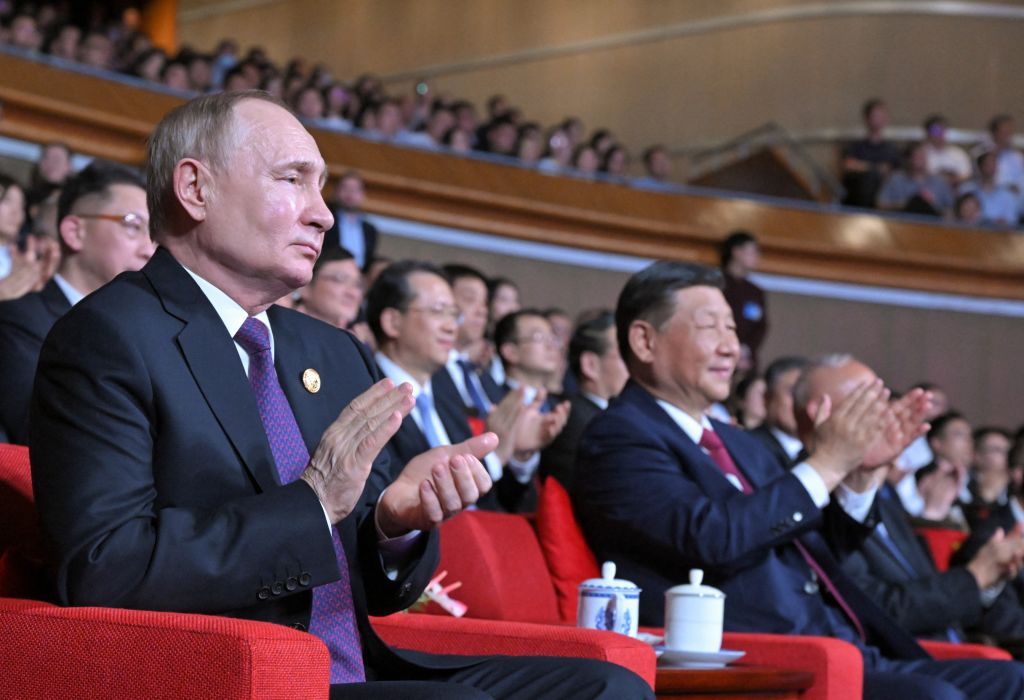Russian President Vladimir Putin’s recent trip to Beijing to meet with Chinese President Xi Jinping sent a strong signal to the West that China stands firmly behind Russia in its war against Ukraine. This visit came after a cabinet reshuffle in Russia, signaling Putin’s focus on the outcome of the war being determined by economic resources. While Russia may seem economically outmatched by the West, China’s $17 trillion economy adds a different dynamic to the balance of power. The West, however, has failed to realize that the war is now primarily about economy and resources, with Ukraine being under-financed and under-resourced in its defense against Russia.
The decline in Western funding for Ukraine, along with delays in U.S. support from Congress, has left Ukraine vulnerable in the face of Russian aggression. Western support has been insufficient, poorly coordinated, and lacking a long-term strategy. In contrast, Putin has presented a long-term war resourcing vision for Russia, highlighting the lack of foresight in Western support for Ukraine. While China’s support for Russia is not wholehearted, it is still influential, with China providing limited military equipment and munitions to Russia. However, China is cautious not to damage its relationship with the U.S. by fully supporting Russia, as it aims to manage relations with both countries strategically.
China and Russia still have tensions in their relationship, despite China’s current support for Russia in its war against Ukraine. Border disputes and concerns about North Korea’s cooperation with Russia create stress points in the China-Russia relationship. Additionally, Russia’s disruptive actions in Ukraine have positioned Russia as a global disruptor, contrasting with China’s adherence to the rules-based international order. China has set boundaries for Russia’s actions in Ukraine and appears comfortable with a longer war as long as these boundaries are maintained. Ultimately, China sees Russia as the junior partner in their relationship and is willing to take advantage of Russia’s weaknesses for its own benefit.
Xi’s recent visit to Europe reaffirmed to European allies that Russia’s war against Ukraine poses a direct threat to European security. China’s relations with both Russia and Europe are carefully balanced, as China aims to maintain its global standing amidst the ongoing conflicts. While China supports Russia to a certain extent, it is also wary of the potential consequences of deeper involvement in the conflict. As the dynamics of the global power balance shift, China is strategically navigating its relationship with both Russia and the West to protect its own interests. The situation in Ukraine underscores the complexities of these international relationships and the need for careful diplomacy in managing conflicts and alliances.


